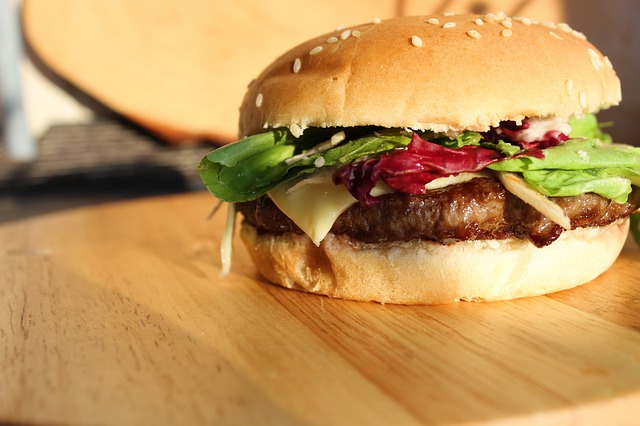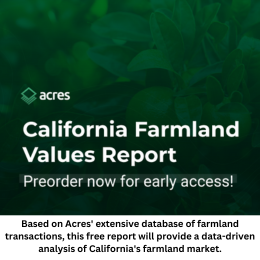March 17, 2020
By Lynda Kiernan
Impossible Foods announced it has secured a massive $500 million through its most recent Series F funding round, led by South Korea’s Mirae Asset Global Investments.
Additional backers include existing investors Khosla Ventures, Horizons Ventures, and Temasek, as well as celebrities Jay Z, Serena Williams, Mindy Kaling, Trevor Noah, Katy Perry, and others, bringing total funding for the company to-date to $1.3 billion.
Founded in 2011 by Dr. Patrick O. Brown, a biochemistry professor with Stanford and former pediatrician, Impossible Foods uses modern technology to make meat from plants, and in the process of sustainably feeding a growing population, is able to do its part to restore natural ecosystems.
Impossible Foods’ raised a $300 million Series E in May 2019, right on the heels of its record-setting IPO, that was largely used to fund a massive scaling effort to meet “unprecedented demand”.
This funding is being announced just before the launch of Impossible Sausage and Impossible Pork – two new products for the company – which debuted at the International Consumer Electronics Show in January 2020.
The company plans to use the capital from this round to invest in fundamental research and innovation; to accelerate the scaling of its manufacturing; to expand its retail presence and availability in key international markets; and to accelerate commercialization of its next-generation product line.
“Our mission is to replace the world’s most destructive technology — the use of animals in food production — by 2035,” said Dr. Patrick O. Brown, M.D., Ph.D., founder and CEO of Impossible Foods.
“To do that, we need to double production every year, on average, for 15 years and double down on research and innovation. The market has its ups and downs, but the global demand for food is always there, and the urgency of our mission only grows. Our investors not only believe in our mission, but they also recognize an extraordinary opportunity to invest in the platform that will transform the global food system.”
Demand for the Impossible Burger, the company’s flagship product, continues to climb, as new strategic partners grow, resulting in an unprecedented sales surge last year that quadrupled production at Impossible Foods’ facility in Oakland, California, and at multiple co-manufacturing plants.
A key sign-on was Burger King, which continues to sell its Impossible Whopper at more than 7,000 of its locations, where the item has exceeded sales expectations. Meanwhile DoorDash, the top food delivery service in the country, launched a dedicated Impossible Cuisine category featuring merchants that offer Impossible menu items. The Impossible Burger also quickly became a top seller at Wegman’s Fairway Markets, and Gelson’s Markets, and Disney recently sealed an agreement to sell Impossible Foods at its U.S. resorts and on its Disney Cruise Line.
The deepening of the connection between consumers and their food supply chains, along with a rising popularity of veganism, concerns over animal rights, and awareness around the hormones, antibiotic usage, and lack of sustainability inherent in the global livestock industry, have pushed many people in Western markets to look toward alternative ways to get protein into their diet.
Another driver is climate change. Global protein consumption is expected to climb at a compounded annual growth rate (CAGR) of 1.7 percent, reaching 943 million tons by 2054, according to Lux Research. On a global scale, greenhouse gas emissions generated by the animal agriculture industry in place to meet this demand account for 14.5 percent of all man-made greenhouse gas emissions – more than the worldwide transportation sector.
As demand climbs, scaling is achieved, price parity with animal meat options becomes a reality, and the company expands into new food categories, Impossible cut its costs to distributors by 15 percent – driving demand even harder.
“It’s true that a conventional company would increase prices on a very hot commodity product,” said Rachel Konrad, chief communications officer, Impossible Foods, told FoodNavigator USA. “But we’re not a conventional company. We want to make our product ubiquitous, super mainstream, super mass market. Our goal is to transition the global food chain away from animal-based agriculture, and to do that you have to compete on price.”
“Right now, even with the price drop, we’re at about the same price as organic grass fed ground beef, per pound, but it’s important for us to get to the same price as 80:20 conventional beef and this is just the first price cut you’ll be seeing.”
– Lynda Kiernan is Editor with GAI Media and daily contributor to the GAI News and Agtech Intel platforms. If you would like to submit a contribution for consideration, please contact Ms. Kiernan at lkiernan@globalaginvesting.

Let GAI News inform your engagement in the agriculture sector.
GAI News provides crucial and timely news and insight to help you stay ahead of critical agricultural trends through free delivery of two weekly newsletters, Ag Investing Weekly and AgTech Intel.




